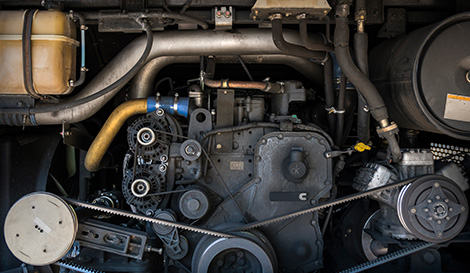Bus and motor coach power has come a long way
Diesel
Yes, the diesel engine is still the most commonly used charter bus engine. They’re more efficient than gasoline, highly durable, and work under many conditions. The engines last considerably longer but now have some limitations due to emissions and aftertreatment systems.
Gasoline
Gas engines are less common for charter bus engines because buses travel long distances and gas engines last ¼ of the life of a diesel engine—but they work well in small and medium size vehicles that travel shorter distances. Gasoline-powered vehicles also warm up quickly, which can be advantageous in colder climates.
CNG & LPG
Natural gas (CNG) and liquefied petroleum gas (LPG) can be used to power buses, but the adoption rate has been slow, even among urban transit fleets, because of the up-front costs and the investment in gas storage facilities. However, the lower production costs associated with the engines and the efficiency has significant upside. Lorenz Bus Service has upwards of 60 propane school buses, and they’ve proven to be the most versatile vehicle during the cold winter climate conditions presented for buses in MN..
Electric
Electric buses are becoming more common, but they’re still better suited to city transportation and shorter trips because of limited range. The type of battery and electric motor determine what type of service the bus is built to deliver. In addition, the size of the battery technology reduces the available luggage capacity of a motor coach – to almost zero. Our clients usually have a lot of luggage.
If you’re planning a trip or just doing research, please feel free to contact us at Lorenz Bus Service for a no-obligation, no-pressure conversation with one of our planning professionals.

